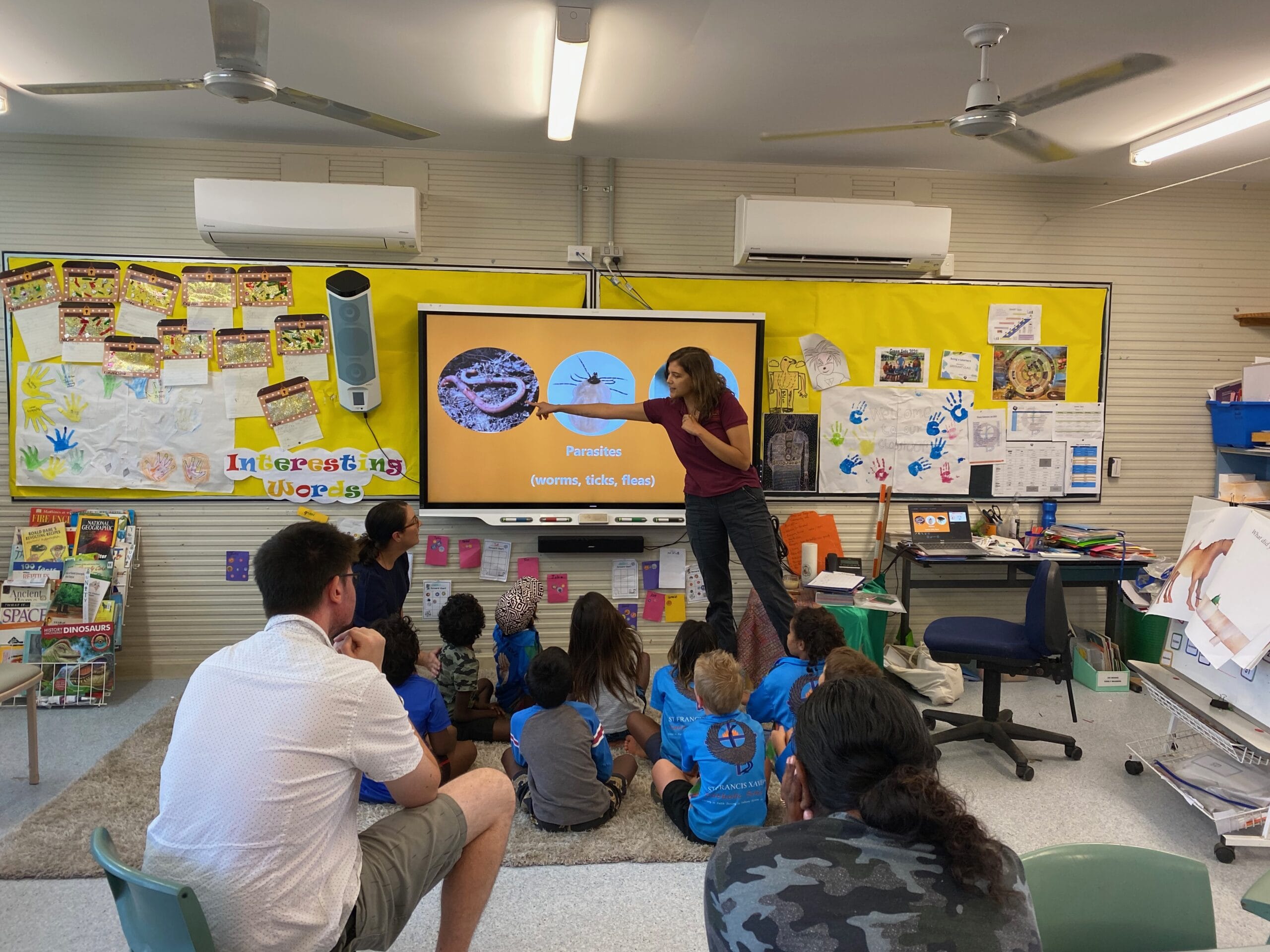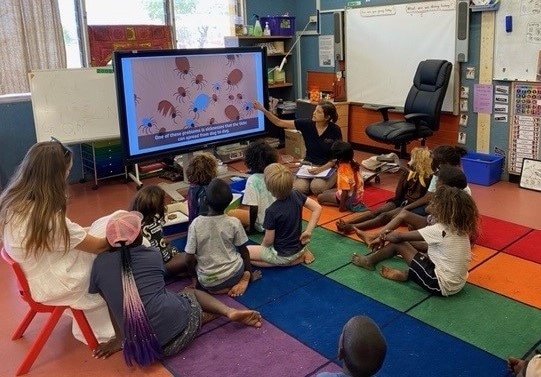
National Science Week occurs every year in Australia to help promote science and its value to the Australian public across many areas. AMRRIC was able to participate in this year’s science week, showcasing the value of science in remote communities in maintaining community health and wellbeing, through one health principles.
AMRRIC’s ‘One Health in Remote Communities’ education program was held across two schools in remote regions of the Northern Territory and aimed to increase awareness of the One Health model and an understanding of the role science, technology, and innovation play in the health of animals, the environment, and people in remote communities. Targeted at both primary and secondary students, the program introduced One Health principles through lessons and activities that focused on the topics of vaccinations and zoonoses.
The love, safety, companionship, and cultural value that dogs bring to people in communities is very significant. In areas that are regularly underserved and often experiencing complex social issues, companion animals are a great source of comfort, support, and mental stability. When these animals suffer, the people suffer too. AMRRIC is a community health, charitable organisation. We recognize that there is an inextricable link between animals and humans. AMRRIC delivers animal-education services to remote communities to improve animal health outcomes, which in turn improves the community and mental wellbeing of all residents.
This education program specifically explored the new tick-borne disease, Ehrlichiosis, which has had a devastating effect on dogs in communities since it was first discovered in Australia in May 2020. The emotional impact of this disease on community residents has been palpable and given the effect, spread, and the severity of the disease, AMRRIC found it pertinent to provide education on the signs and symptoms of this disease, how it is transmitted, and how it can be prevented during this program. Vaccinations and parvovirus were also explored, allowing students to gain a greater understanding of why vaccinations are important and how being vaccinated at the correct time is integral to disease prevention.
Engaging youth in communities with education around companion animal health and disease allows community members to make informed decisions about the health of their pets and themselves and AMRRIC were thrilled to be able to provide one health education through this Science Week initiative. Special thanks go to Inspire NT and the schools involved for making this program possible, and to NIAA for their continuing support.
